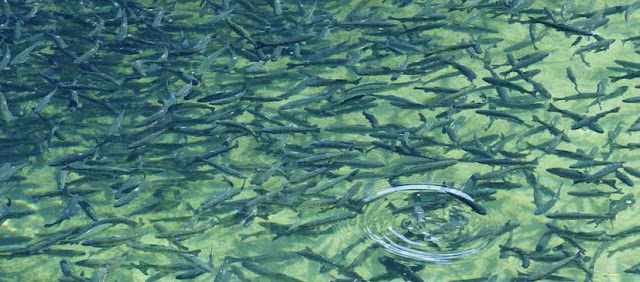by Fernando Roberti, Biorigin
First published in International Aquafeed, May-June 2016
Fish production has been gaining increasing importance in the protein market and in the animal nutrition sector. Estimates indicate that it will reach 160 million tonnes by 2030, with an increasing participation of aquaculture1. In this context, for supporting the intensification of the production, which on one hand requires increasingly revenues, but on the other predisposes to disease outbreaks, the use of functional compounds becomes essential.
To achieve an economically viable aquaculture, it is fundamental to maximise nutrient digestibility and retention, feed conversion rate, dietary nutrient balance, and minimising fish mortality in antibiotic-free conditions through the development of health-promoting diets. In this context, the inclusion of prebiotics into fish diets plays a very important role for these results to be reached.
Prebiotics
Prebiotics are non-digestible compounds able to modulate gut microbiota and to selectively stimulate the growth of beneficial bacteria2. Among prebiotics, mannanoligosacharides (MOS) from the yeast Saccharomyces cerevisiae have been widely researched and applied in animal nutrition.
The main described effects of MOS are related to pathogen colonisation blocking, alongside growth and feed conversion improvement. The use of MOS as a pathogen colonisation blocker evolves from the concept that some sugars as mannose could be used as inhibitors of pathogen adhesion to intestinal cells.
Read the full article in International Aquafeed HERE.
First published in International Aquafeed, May-June 2016
Fish production has been gaining increasing importance in the protein market and in the animal nutrition sector. Estimates indicate that it will reach 160 million tonnes by 2030, with an increasing participation of aquaculture1. In this context, for supporting the intensification of the production, which on one hand requires increasingly revenues, but on the other predisposes to disease outbreaks, the use of functional compounds becomes essential.
To achieve an economically viable aquaculture, it is fundamental to maximise nutrient digestibility and retention, feed conversion rate, dietary nutrient balance, and minimising fish mortality in antibiotic-free conditions through the development of health-promoting diets. In this context, the inclusion of prebiotics into fish diets plays a very important role for these results to be reached.
Prebiotics
Prebiotics are non-digestible compounds able to modulate gut microbiota and to selectively stimulate the growth of beneficial bacteria2. Among prebiotics, mannanoligosacharides (MOS) from the yeast Saccharomyces cerevisiae have been widely researched and applied in animal nutrition.
The main described effects of MOS are related to pathogen colonisation blocking, alongside growth and feed conversion improvement. The use of MOS as a pathogen colonisation blocker evolves from the concept that some sugars as mannose could be used as inhibitors of pathogen adhesion to intestinal cells.
Read the full article in International Aquafeed HERE.
The Aquaculturists
This blog is maintained by The Aquaculturists staff and is supported by the
magazine International Aquafeed which is published by Perendale Publishers Ltd
For additional daily news from aquaculture around the world: aquaculture-news


No comments:
Post a Comment